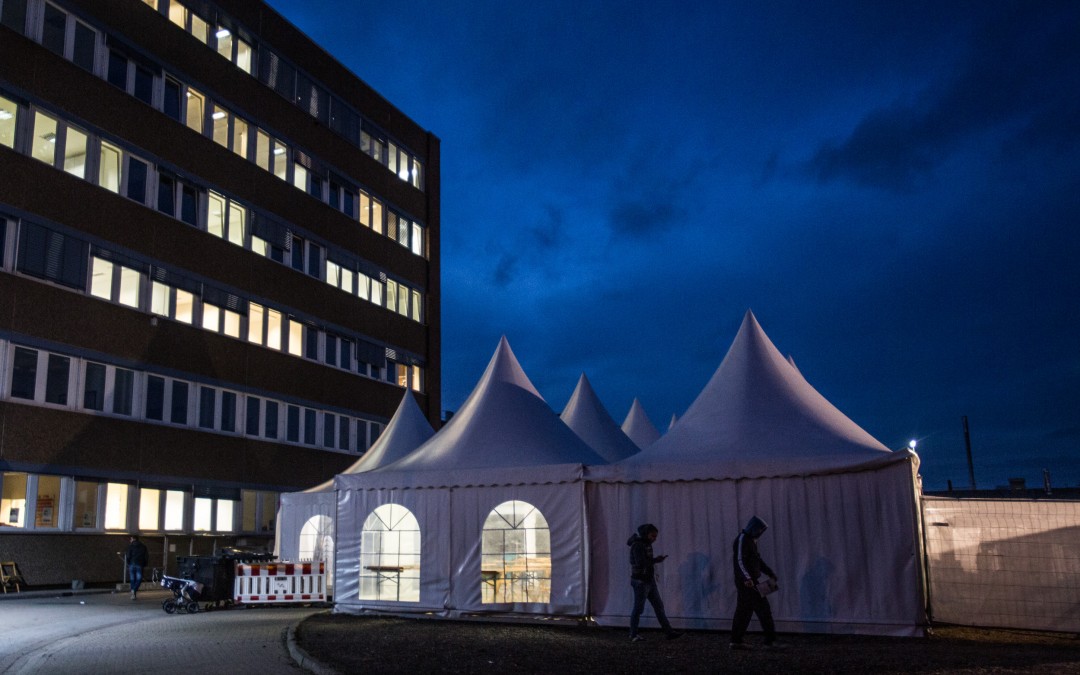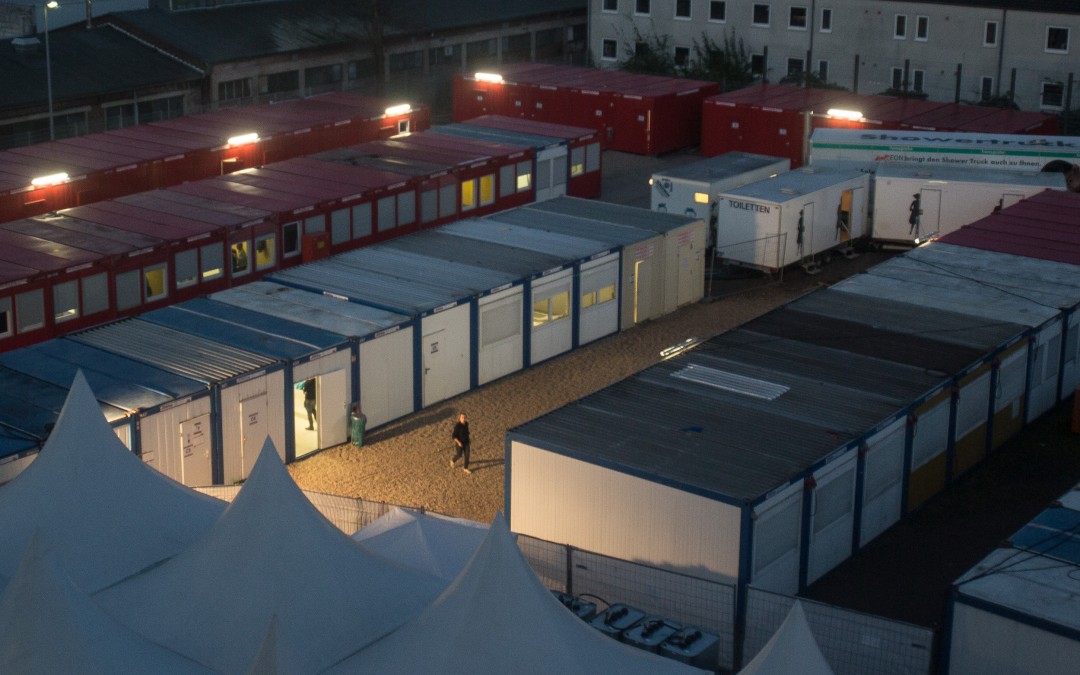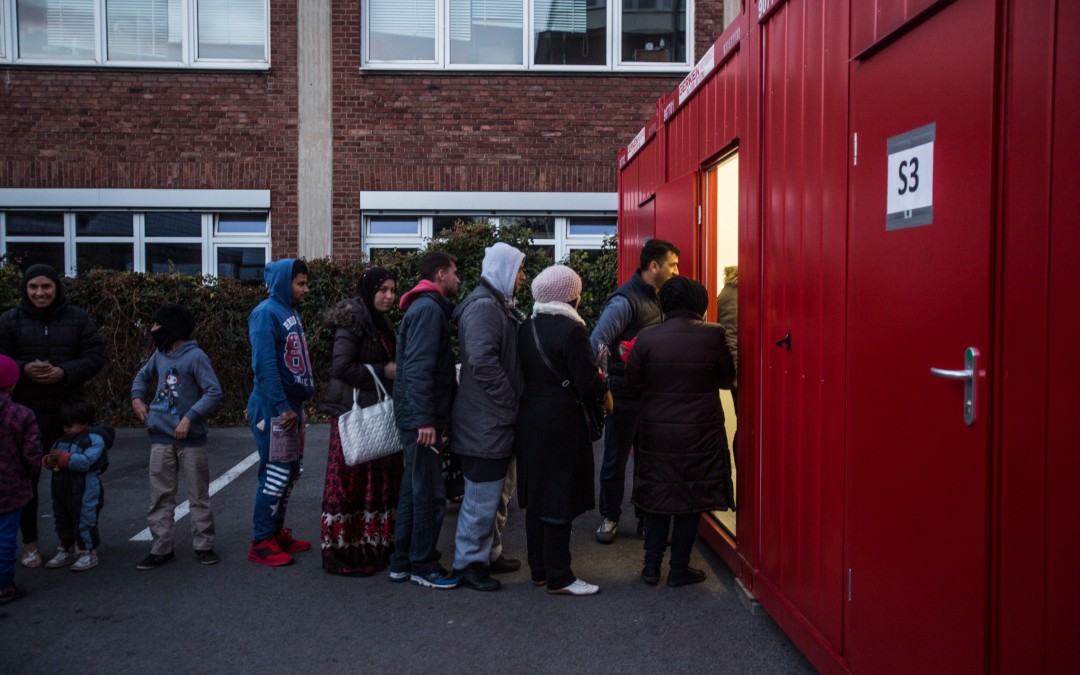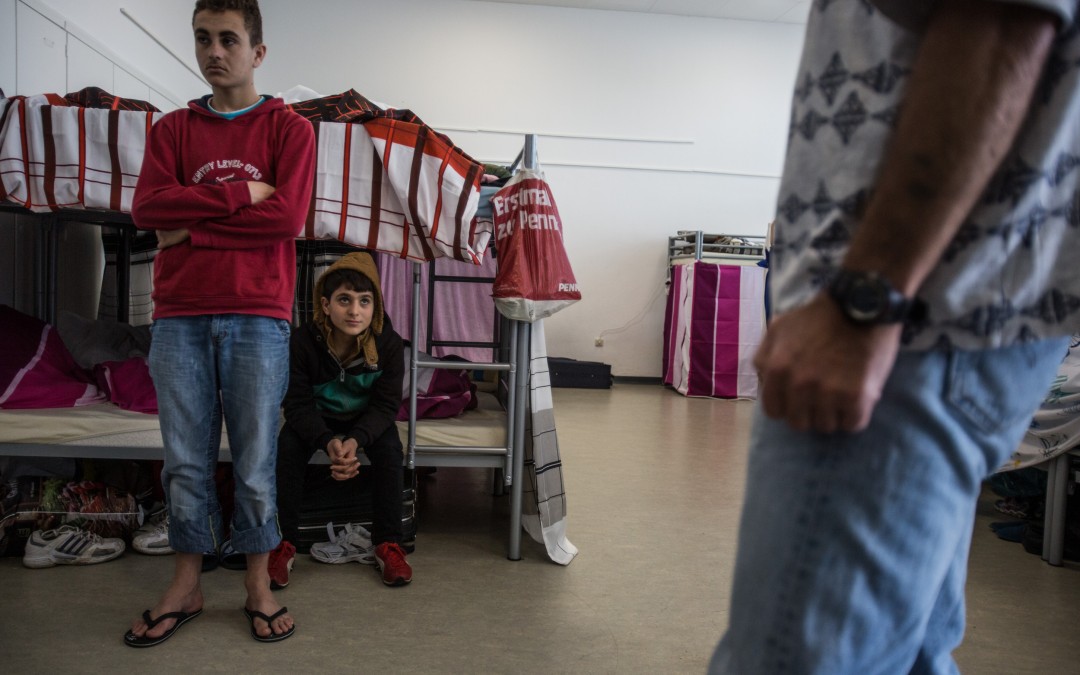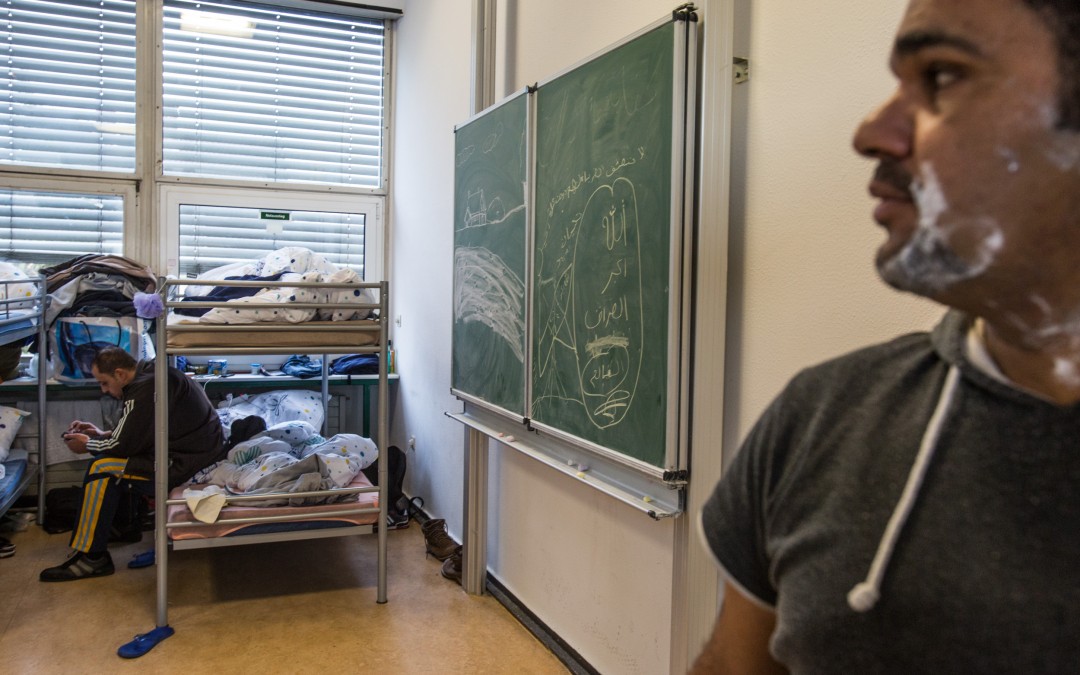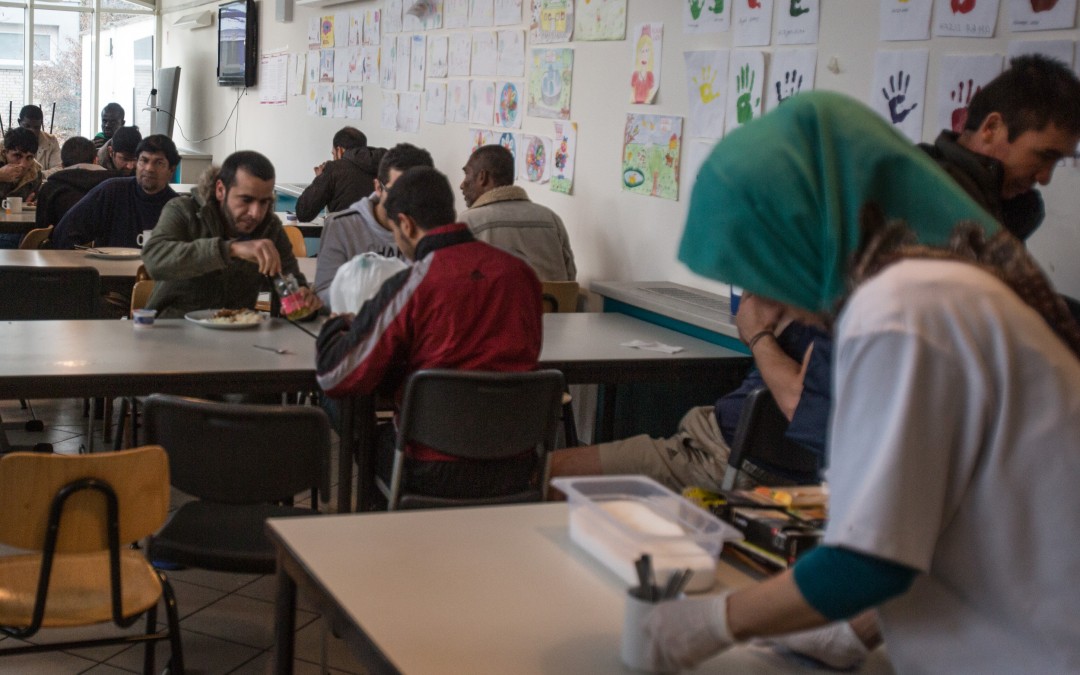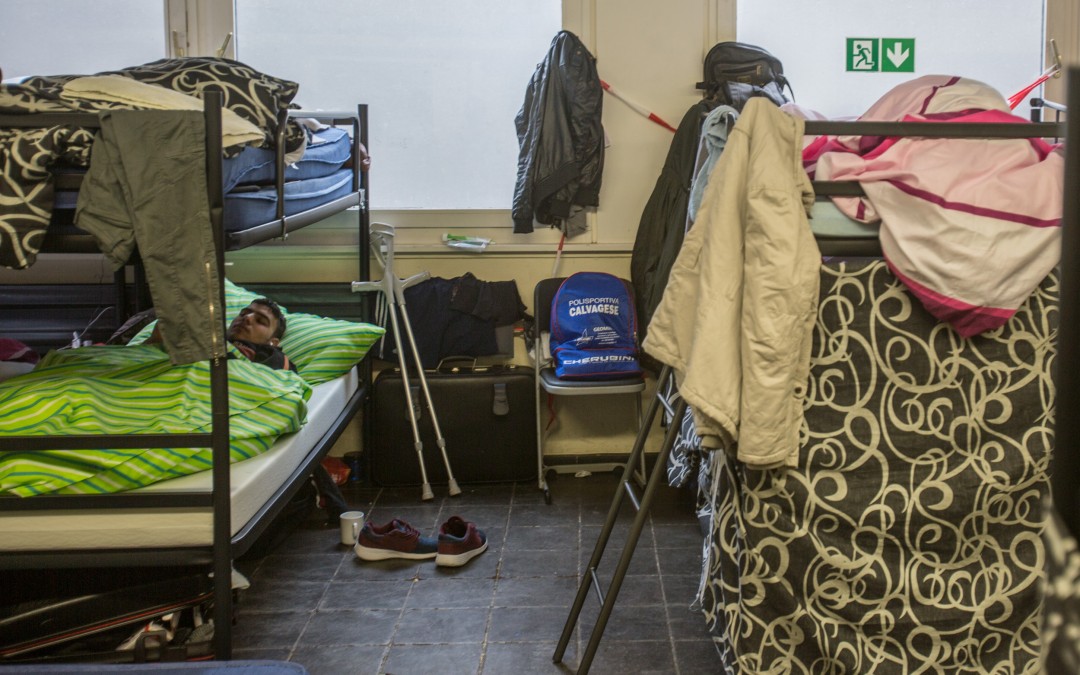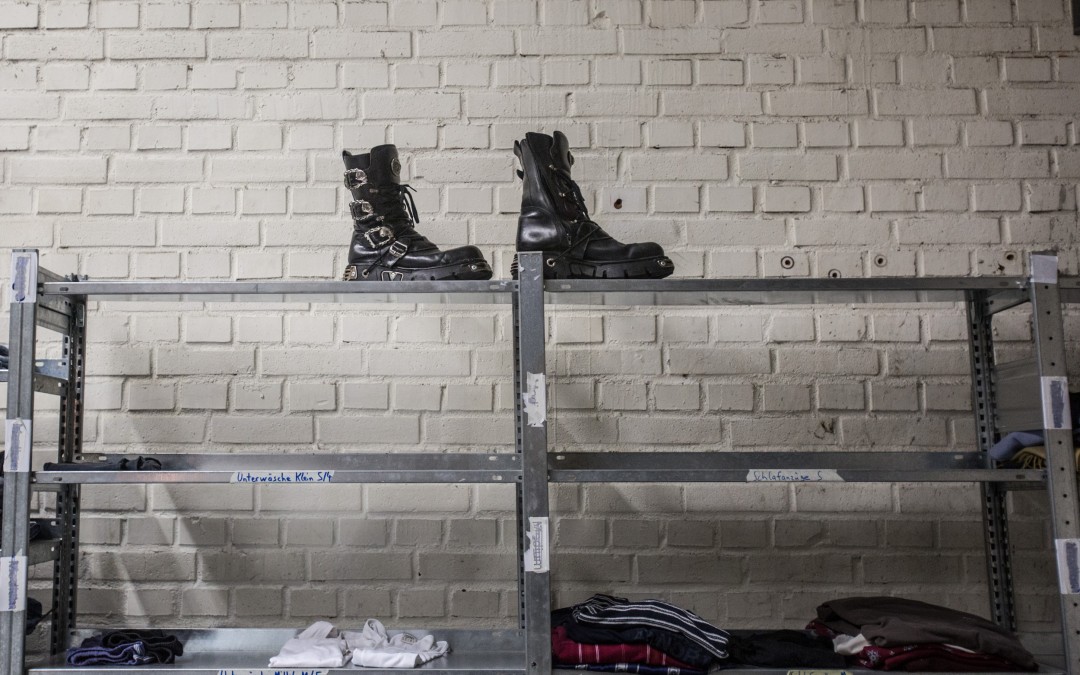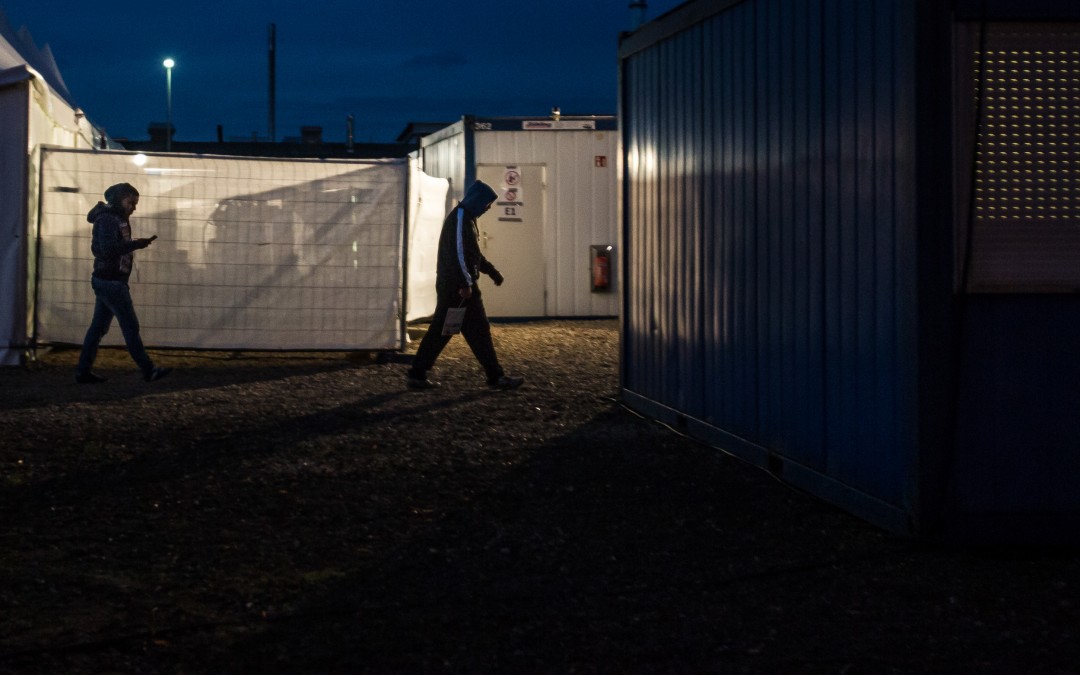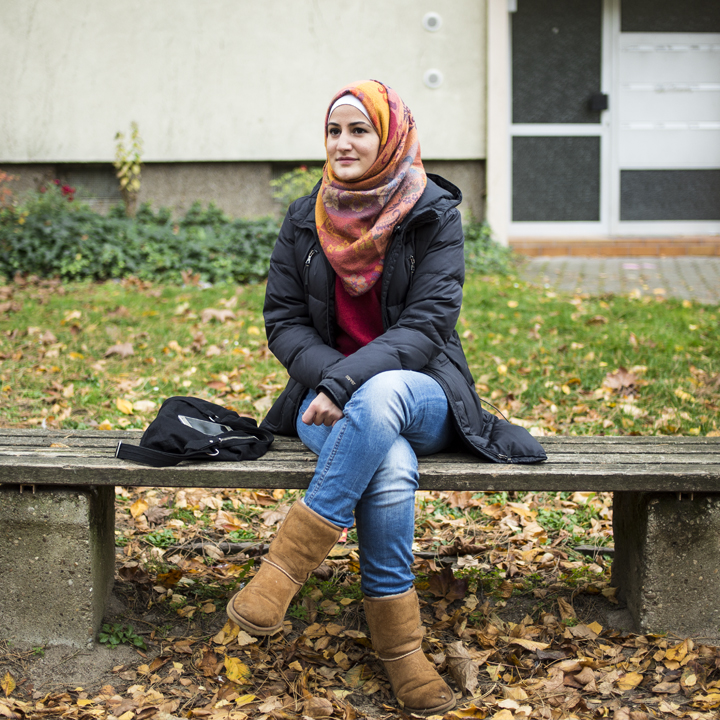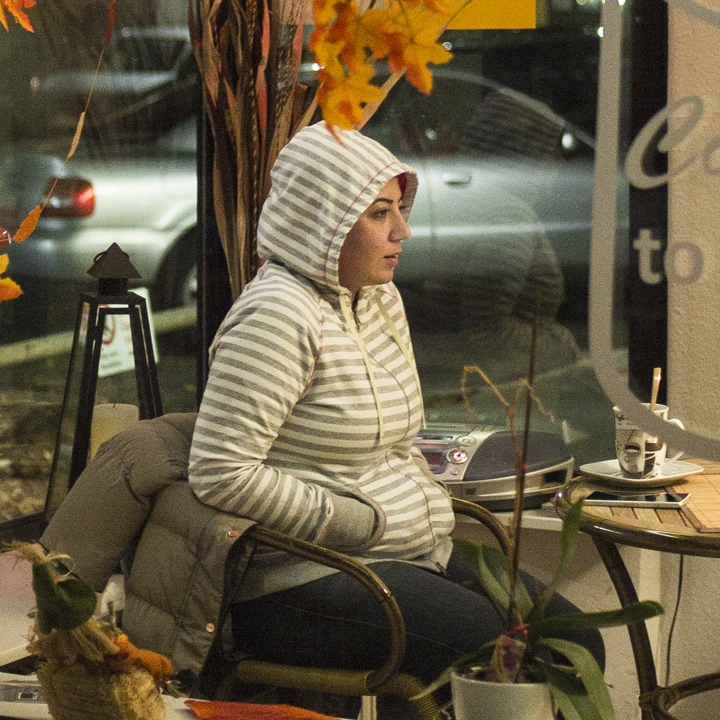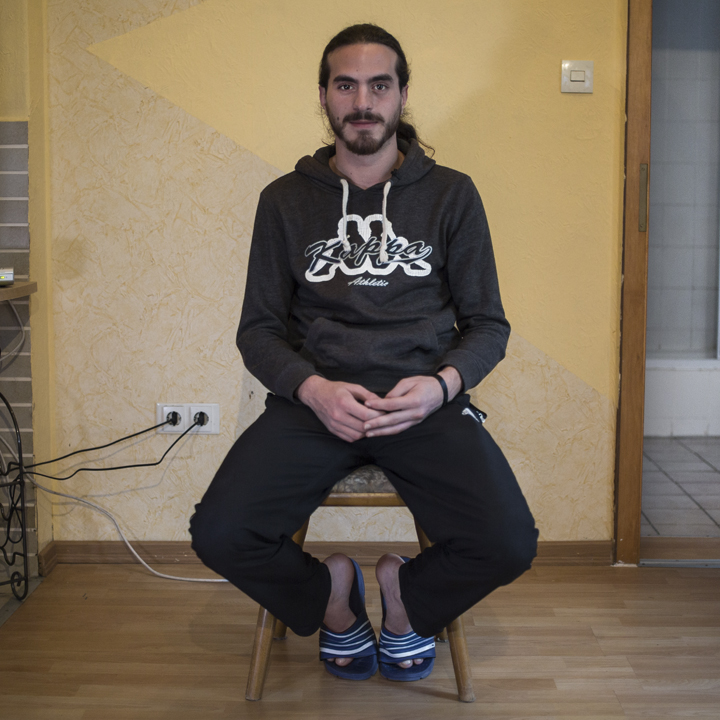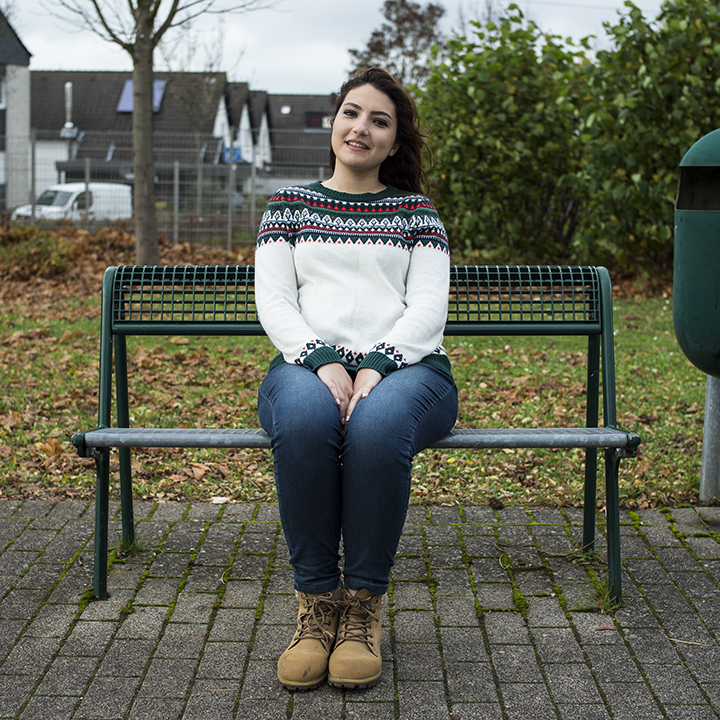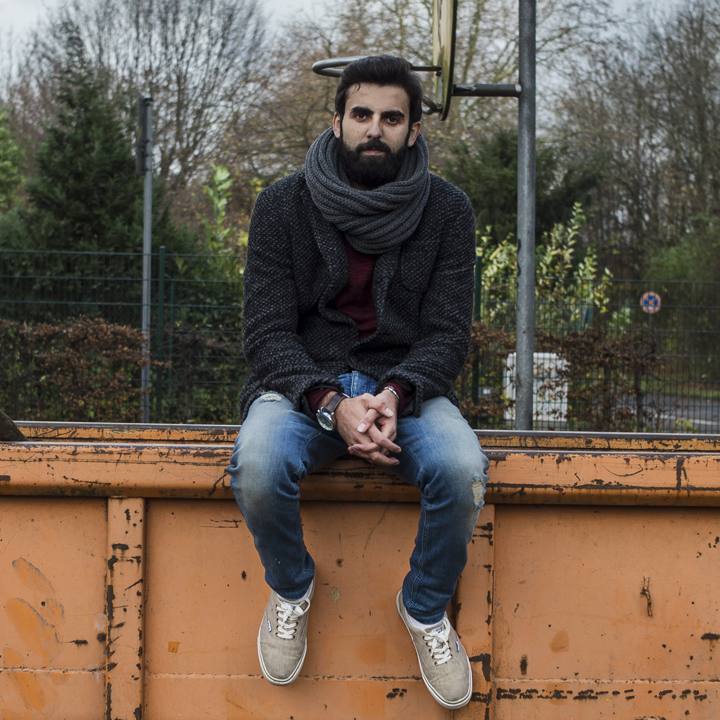LOOKING AHEAD
This is the story of the fallout of war in its most human form: meet the Syrian refugees who made the journey across Europe fleeing war in their homeland for the safety of Germany.
“Priority number one is health. Everybody undergoes a thorough medical check-up when they first come in; tuberculosis is the main threat, so discipline is key.”
When they crossed into Germany from Austria, Yazan, along with Marwa and twelve other friends, were received by German Federal Police and registered as refugees. They were transported to a refugee camp in Wiesbaden, 30 kilometers west of Frankfurt, where they were given medical exams and checked into the system. They spent five weeks in the camp before being sent to a temporary house in a tiny village near Kassel.
Living in a refugee camp has been a new experience for all of them. The Wiesbaden camp is set up in a disused school for disabled children that had been slated for demolition and reconstruction last year. The camp is controlled by a team of ASB workers headed by Raphael, a 35-year-old Wiesbaden native with 12 years of experience as a paramedic and ambulance coordinator. Raphael’s team of about 30 people works constantly not only taking care of refugees but readying spaces to house those that continue to arrive – cleaning, installing beds, setting up children’s playrooms, and much more. The school in question can shelter up to 300 refugees at a time; 165 were living there at the time of this interview. Raphael told us that when new refugees arrive, the German authorities at the Geissen camp hand a ticket and some papers to the new arrivals, and then drop some of them off at his camp, usually on short notice. Raphael describes that as his biggest headache – he often has to scramble to welcome several busloads of people at a time, sometimes at 3 or 4 in the morning.
But despite the logistical difficulties, he says he enjoys doing this work because it’s a good opportunity to learn about emergency protocols and how to deal with people in vulnerable conditions. He says the most important thing for his temporary guests to learn is that here, under his improvised roof, “everybody is equal, no matter the country of origin.” When refugees first arrive, he tells them they are now in Germany, in his camp, so forget about Afghanistan or Syria – local rules apply here.
Raphael has seen lots of people from other countries like Morocco and Algeria also arriving in recent months with the intention of staying in Germany, but he thinks the government will eventually send those who don’t come from war-torn countries back as, in his opinion, priority should be given to those fleeing war and extreme violence.
Across Germany, state governments are in charge of renting available spaces that can be adapted for sheltering migrants (such as empty schools, office buildings and sports complexes). They then hire organizations like the Worker’s Samaritan Federation (ASB) or the German Red Cross to manage the camps. Local governments also pay for food and medicine, sending whatever the migrants might need, such as warm clothing for winter and the weekly stipend of 30 euros that every refugee living in a camp is entitled to.
The response by Germans to having refugees arrive in their towns and cities has generally been positive, especially in western Germany, according to Raphael. “Most people like having the migrants here, or at least they are not opposed. Some neighbors donate things or volunteer their time to community chores.” He thinks most hostility comes from eastern Germany, where “stupid people from Hitler’s time” have activated far-right movements like PEGIDA, rooted in Dresden – a small group with an outsize presence in international media thanks to its incendiary views.
In Weisbaden, Raphael says, the only complaints he’s received have come when migrants are brought late at night: the engines of the government buses awaken the camp’s neighbors. We mention that Yazan brought us here because he has great memories of his time in Weisbaden — he helped Raphael as an Arabic-English translator while he was here — and that prompts Raphael to talk about the friendships made here since September, when the camp was established. Most people tend to stay for four to five weeks before being relocated to other places, and Raphael’s responsibility ends at the gates of the repurposed school: refugees are allowed to go outside and walk around as they please, as long as they come back to sleep in the camp, and nobody can tell them what to do. If they decide to abandon their registration process and leave the camp to continue their journey on their own, however, they become illegal and can face trouble with the German police.
Many of those who’ve spent time in Raphael’s camp have disappeared without a trace, he recounts — refugees are often enticed by rumors about alternative routes and better destinations. Some attempt to reach the Nordic countries, for example, where it’s said the prospects are better than in Germany. In the end, it’s impossible to keep track of those who wander off looking for a better situation.
Yazan, like everybody else, slept in a classroom with eleven other people here before being relocated to his current provisional home in Ostheim, a tiny town near Kassel.
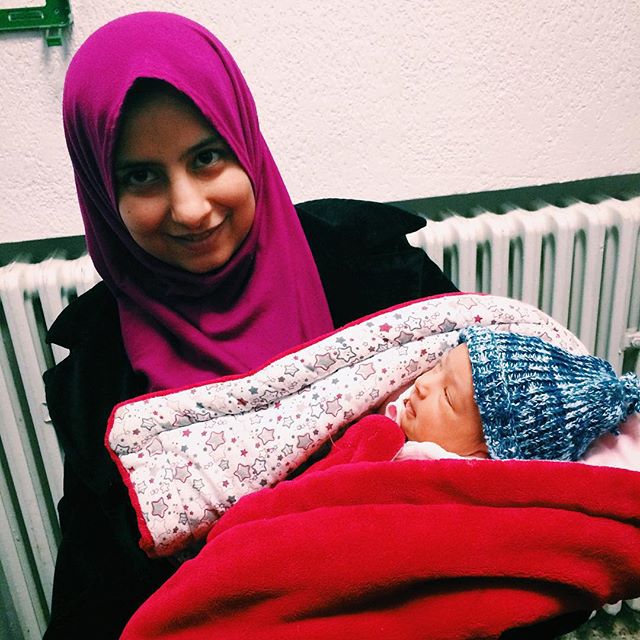
Zenia, the newest addition to the Syrian community in this Red Cross refugee camp, now sheltering over 700 people near Dusseldorf. Unlike in the U.S., people that are born in German territory do not automatically become German citizens. Even though she was born in a hospital near the camp, Zenia will be dependent on her parents’ asylum application to one day be able to carry a European passport — or otherwise, be forced to return to her family’s country of origin.
THERE WAS NO MANUAL FOR THIS
Today, over one million refugees have made their way into Germany, a mass migration that has become the biggest challenge for German authorities in decades as they’ve had to tackle everything from crowd management to the delivery of humanitarian aid and supplies on a massive scale. Since Germany operates under a federal system and not every state has the capacity to accept the same number of refugees, the German authorities put a system in place to organize the distribution of people around the country. They developed an algorithm that determines how many refugees should go to each state based on the characteristics of the local population, the available free space for accommodation and other factors. The state of North Rhine-Westphalia, whose capital is Dusseldorf, for instance, has taken 21% of all refugees coming into Germany.
Mr. Rainer Keller, chief of operations for the German Red Cross in Wesel county, runs a massive refugee camp that currently shelters over 700 people in Wasel, near Dusseldorf. He receives busloads of people coming from waiting areas on the border and accommodates them in an empty office building and adjacent parking lot that the county is renting from a bankrupt construction company.
Keller’s staff – about 12 Red Cross workers per shift – and a few private security guards take care of everything from registering new refugees to distributing clothing and food for the 700-plus inhabitants of the camp. Managing this place is incredibly complex: people come in and out, refugees don’t all speak the same language, and culture clashes erupt easily; young men, children, pregnant women, and the elderly all live together inside what can seem to be a gigantic pressure cooker.
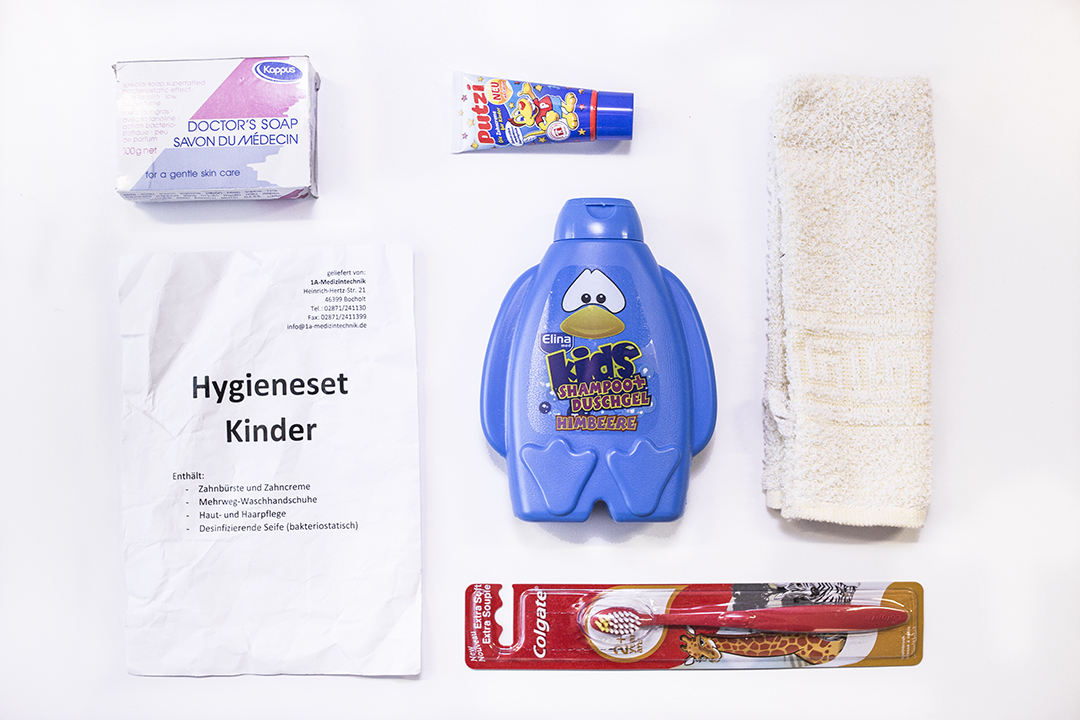
Hygiene kit provided by the German Red Cross to refugee children on arrival.
Priority number one is health. Everybody undergoes a thorough medical check-up when they first come in; tuberculosis is the main threat, so discipline is key. After the long and cold journey that refugees have taken, during which they’ve often slept outside and eaten poorly, most people’s immune systems are severely affected, and many carry respiratory diseases.
Thanks to people like Mr. Keller, who has experience leading relief efforts in major disasters like the 2010 Haiti earthquake, the largely improvised response to the sudden massive flow of refugees into Germany has gone fairly well – that is, no one has died so far.
THE CHARACTERS – PART 3
This is the story of the fallout of war in its most human form: meet the Syrian refugees who made the journey across Europe fleeing war in their homeland for the safety of Germany.
